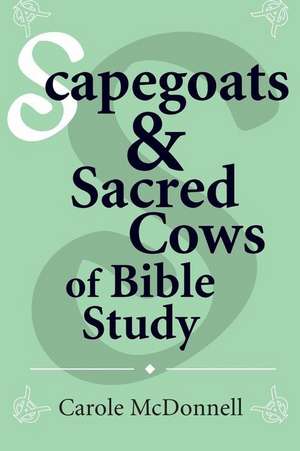Scapegoats and Sacred Cows of Bible Study
Autor Carole McDonnellen Limba Engleză Paperback
Preț: 42.75 lei
Nou
Puncte Express: 64
Preț estimativ în valută:
8.18€ • 8.43$ • 6.91£
8.18€ • 8.43$ • 6.91£
Carte disponibilă
Livrare economică 10-24 februarie
Preluare comenzi: 021 569.72.76
Specificații
ISBN-13: 9781517655075
ISBN-10: 1517655072
Pagini: 112
Dimensiuni: 152 x 229 x 6 mm
Greutate: 0.16 kg
Editura: CreateSpace Independent Publishing Platform
ISBN-10: 1517655072
Pagini: 112
Dimensiuni: 152 x 229 x 6 mm
Greutate: 0.16 kg
Editura: CreateSpace Independent Publishing Platform
